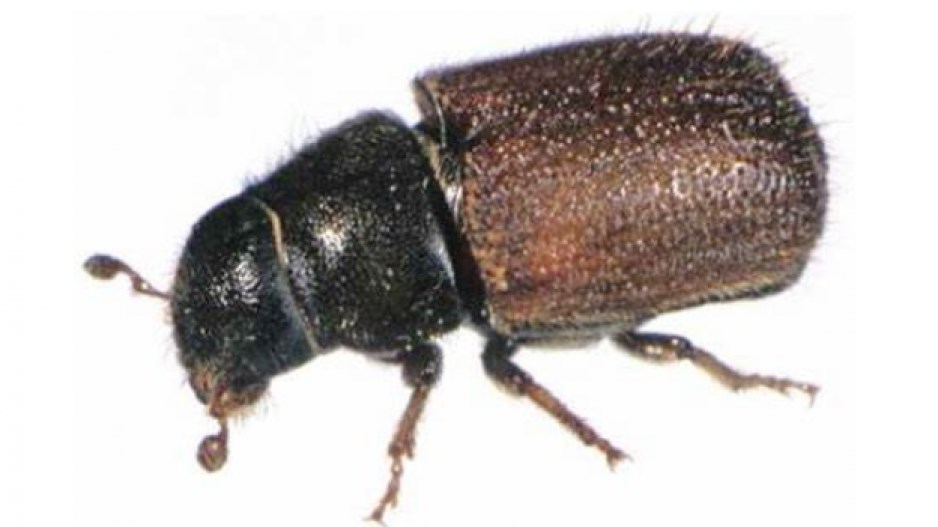The Forest Practices Board sees room for improvement when it comes to the Ministry of Forests' monitoring of harvests of trees damaged by the spruce bark beetle in north-central B.C.
In response to a public complaint, the FPB found that while the forest industry is making progress in recovering beetle-damaged timber, it called on the ministry to improve monitoring of industry's response and report to the public about how the outbreak is being managed.
The findings, issued this week, were in response to a public complaint about Canfor's and BC Timber Sales' practices related to the harvest in the Prince George Natural Resource District.
The complainants are concerned that the licensees are favouring lightly attacked and healthy forests, rather than harvesting the most severely infested trees, and that this has implications for the region's future timber supply.
"Our investigation found that Canfor and BCTS are making progress in harvesting infested and dead spruce trees, but the complainant's concerns are still valid," said FPB board member Gerry Grant.
"Responding to the outbreak is challenging because some severely affected areas are deferred or reserved from harvest to address other forest values, like wildlife habitat. Many are in remote and steep terrain, and some are not economic to recover."
The investigation also looked at government's efforts in managing the infestation and found that while the Ministry of Forests has provided guidance to licensees to focus their harvesting on severely infested stands, the ministry has not consistently monitored licensee activities to see if the direction is being followed and has not reported to the public on the status of the response.
"The board is recommending that the ministry implement a monitoring process and publicly report on licensees' efforts to manage the infestation," said Grant. "It's important for the public to know how the outbreak is being handled and how public forests are being managed in the affected area."
In a reply to a request for comment, the Ministry of Forests said efforts are already underway to build on and improve bark beetle monitoring protocols to make them more transparent and effective.
"In addition to the public annual bark beetle summit in Prince George, the Ministry has drafted an initial monitoring protocol to assess harvesting of spruce beetle in the Omineca Region using licensee-submitted data," the ministry added. "This will help us summarize harvesting data both within and outside beetle outbreak areas. This practice may then be expanded to the provincial scale."
The outbreak is primarily in the Omineca Natural Resource Region, which covers about nine million hectares and includes the Prince George, Mackenzie and Stuart Nechako natural resource districts. It overlaps the territories of more than a dozen First Nations.
Spruce beetles occur in patches dotted across the landscape, rather than being concentrated in a specific area, and do not usually kill all the spruce trees in affected forests.
Beetles feed on the inner bark of weakened trees, but may also affect healthy trees if the infestation becomes significant. Spruce beetle infestations occur naturally and typically last seven or eight years, but the current outbreak has been made worse by the warming climate.
The Forest Practices Board is B.C.'s independent watchdog for sound forest and range practices, reporting its findings and recommendations directly to the public and government.




